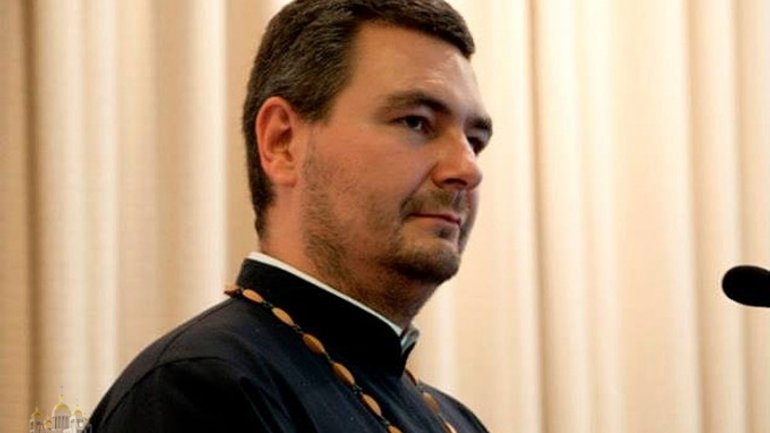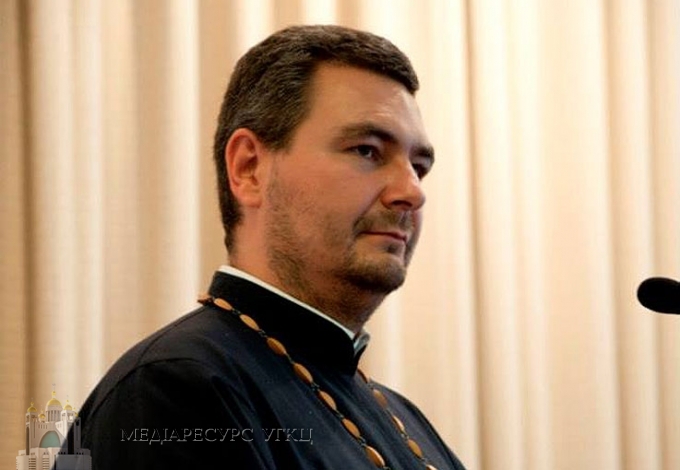Head of UGCC Commission for Promoting Christian Unity: Political Conflict Should Not Be Transfered to Religious Ground

 In the Vatican the session of the Pontifical Council for Promoting Christian Unity came to an end; on the blessing of His Beatitude Sviatoslav, a representative of the Ukrainian Greek Catholic Church, Fr Ihor Shaban, participated in the session.
In the Vatican the session of the Pontifical Council for Promoting Christian Unity came to an end; on the blessing of His Beatitude Sviatoslav, a representative of the Ukrainian Greek Catholic Church, Fr Ihor Shaban, participated in the session.
The meeting was dedicated to the 50th anniversary of the conciliar Decree on Ecumenism, the publication of which was a turning point in interfaith relations and which, in fact, opened a new page in relations between the Churches. “Is half a century much or little?” representatives of the denominations wondered.
Despite the fact that the Churches made a big step toward each other during that period, from the long-term historical perspective this is a very short period, says Fr. Ihor Shaban, head of the Commission of the UGCC for Promoting Christian Unity. Moreover, unfortunately, there is a notable setback in relations between the Churches, the cause of which, or a so-called "stumbling block," as many people claim, is the very existence of the Greek Catholic Church, the priest said. “Speaking of the Greek Catholic Church, this question has already been raised at the interfaith level, in the early 90s. Then the discussion lasted several years and resulted, in my opinion, in very balanced and wise decisions: the so called document of Balamand (1993), which rejects the historical methods of unification, recognizing the undoubted right to exist of the Eastern Catholic Churches that act and service the spiritual needs of theirfaithful. Millions of people belong tothese churches. In the early 90s, this issue was brought to a close. Today, however, this debate again is gaining momentum and some political processes that we see in Ukraine are transfered to religious grounds. This is painful, as this is not a Christian fraternal approach,” said Ihor Shaban.
Unfortunately, today the political issues have a considerable impact on the religious situation in Eastern Europe, said the Greek-Catholic priest. And now, 25 years after revival, when religious education seems to bring positive results, it is especially painful. Despite the fact that all Ukrainian Churches have significantly recovered after the Soviet regime, a whole generation of young believers has been brought up in the spirit of Christian values, a so-called gap in their religious and moral formation still remains quite visible. And it might be a kind of reason for today's conflicts,” said Fr. Ihor Shaban. “If we look at the statistics of attendance of temples, we will see that not so many people come to pray at church. No doubt the figures are different in Western, Eastern or Central Ukraine. However, if we look at our neighboring states, there are also very different figures. And the question to all the churches emerges, what they have done for their next generation during the past 25 years?” said the priest in an interview with the Belarusian editorial office of Vatican Radio.
The situation in Ukraine became a litmus test, when political turmoil extends to the ecclesial plane, especially at the level of ordinary believers. This is inadmissible, Fr Ihor Shaban is confident. The voice of the Church is always aimed at protecting peace and tranquility between states and among politicians, as well as among clergy and believers of different faiths,” this is what Bishop of Rome Pope Francis reiterated, referring to the Ukrainian people.
“We hope that people will listen to the voice of the Church. It is important that the Church in Ukraine is not silent and is trying to tell the truth. Hopefully, if today some people do not listen to the voice of the Church, they will understand it one day. All the Churches in Ukraine, in unison, using civil platform – the All-Ukrainian Council of Churches and Religious Organizations - have voiced several times joint statements and documents to convey the truth to people, calling for peace and a peaceful resolution to all conflicts. But for some reason they were not heard by men of arms,” said the priest.









